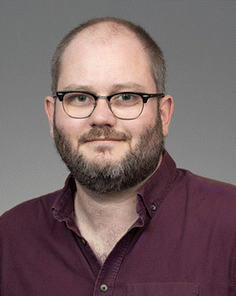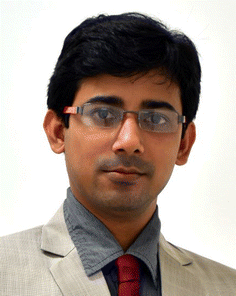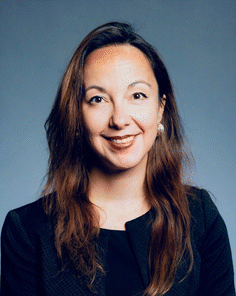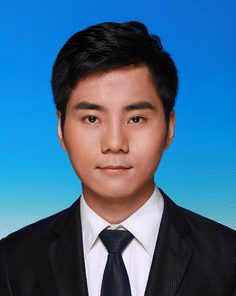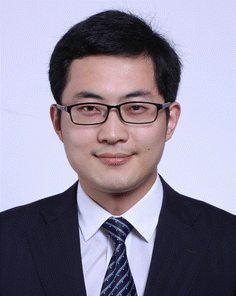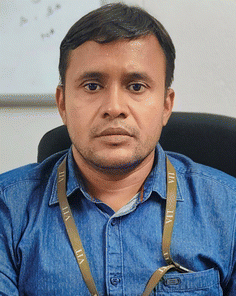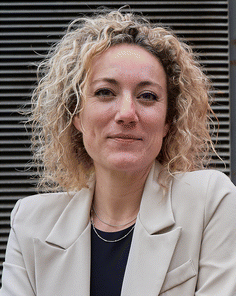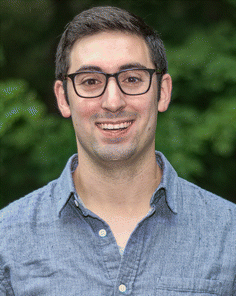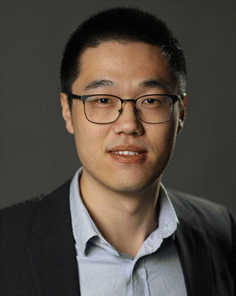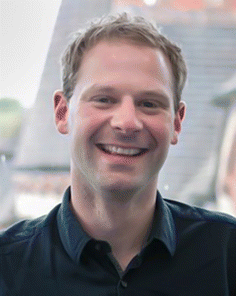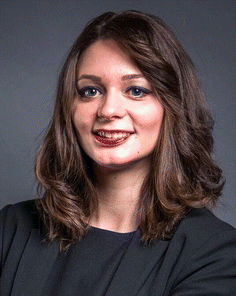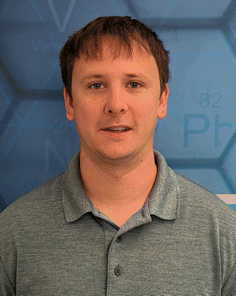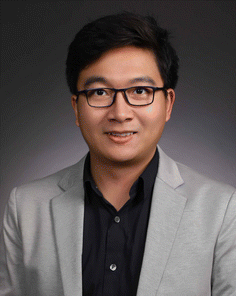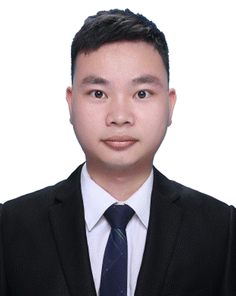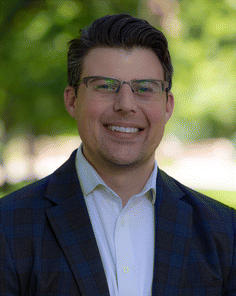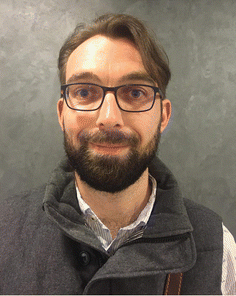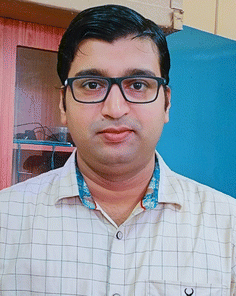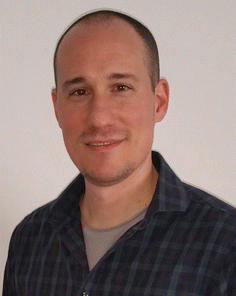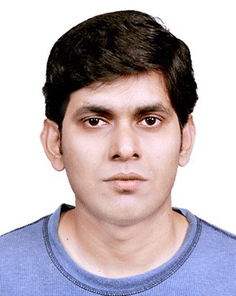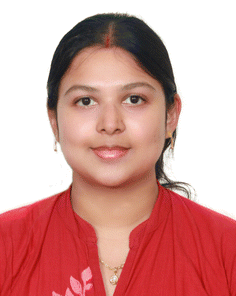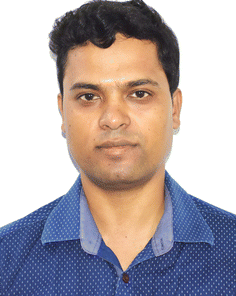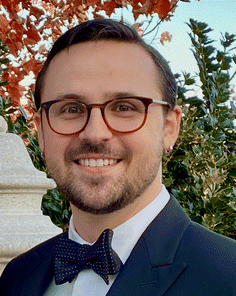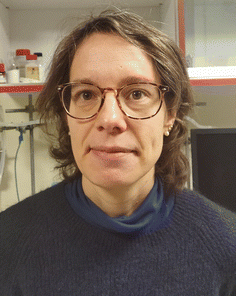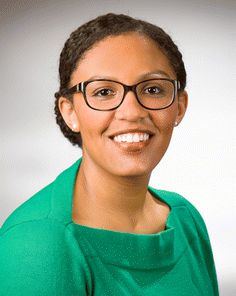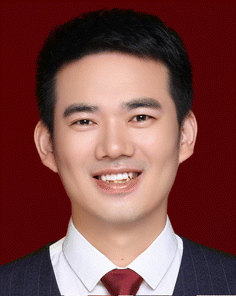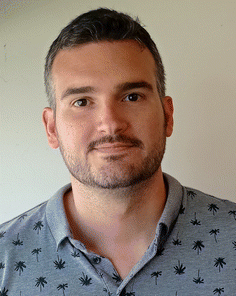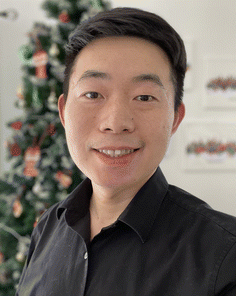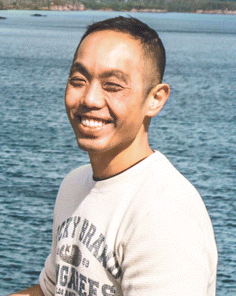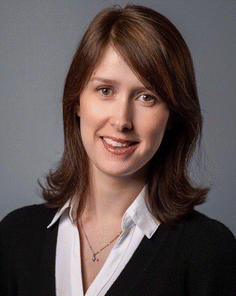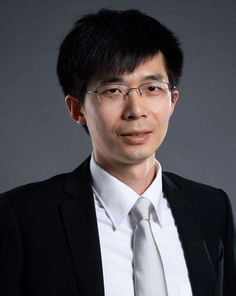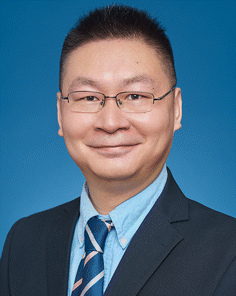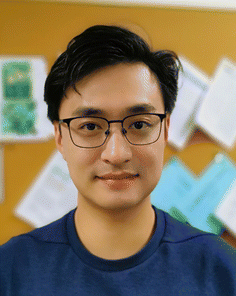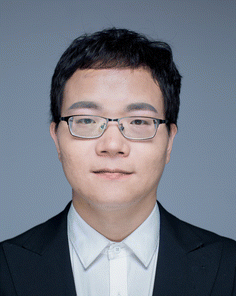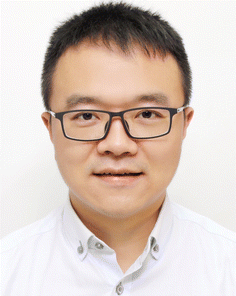DOI:
10.1039/D4CC90057J
(Profile)
Chem. Commun., 2024,
60, 2434-2441
Contributors to the Emerging Investigators collection 2023: Part 3
George M. Burslem obtained his undergraduate degree in Chemistry from the University of Bristol, before moving to the University of Leeds for his doctoral studies with Professors Andrew Wilson and Adam Nelson, focused on inhibiting protein–protein interactions. He was awarded his PhD in 2015 and moved to Yale University to perform postdoctoral research in the group of Professor Craig Crews. In 2020, George started his independent career at the University of Pennsylvania in the Departments of Biochemistry and Biophysics, Cancer Biology and the Penn Epigenetics Institute. The Burslem lab develops chemical tools to understand and modulate lysine post-translational modifications.
Prosenjit Daw has been working as an assistant professor since 2019 at the Indian Institute of Science Education and Research (IISER), Berhampur, India. He obtained his PhD in 2015 from IIT Kanpur, India, as a Shyama Prasad Mukherjee Fellow. Then, he moved to the Weizmann Institute of Science, Israel, as a post-doctoral fellow (PI Prof. David Milstein) and worked on pincer-based catalysts for small-molecule activation. His present research focuses on the development of sustainable chemical reactions to generate energy carriers or fuels from readily available renewable sources, where appropriate organometallic compounds are used for catalytic chemical transformations.
Selvan Demir is an Assistant Professor of Chemistry at Michigan State University. She received her PhD in Chemistry from the University of Cologne in 2010, researching scandium chemistry with Prof. Gerd Meyer and Prof. William J. Evans at the University of California, Irvine. Subsequently, she conducted postdoctoral studies with Prof. Jeffrey R. Long at the University of California, Berkeley, and Dr David K. Shuh at Lawrence Berkeley National Laboratory. She was a Junior Professor of Inorganic Chemistry at the University of Göttingen. In 2019, she joined Michigan State University. Her research program focuses on catalysis, small-molecule activation, single-molecule magnetism, and quantum information science, with the rare earth and actinide elements.
Chao Gao received his PhD in inorganic chemistry in 2015 (with Professors Xingjiu Huang and Zhiyong Tang) from the University of Science and Technology of China (USTC). During his PhD research, he had three years of training (2013–2015) with Professor Zhiyong Tang at the National Center for Nanoscience and Technology (NCNST). He is currently an Associate Professor in Professor Yujie Xiong's research team at the USTC. His current research interests are focused on the design and synthesis of photocatalysts, photoelectrodes and semi-artificial photosynthetic biohybrids for carbon dioxide reduction, nitrogen fixation and methane conversion.
Dechao Geng has been a Professor at the Key Laboratory of Organic Integrated Circuits, Ministry of Education, Department of Chemistry, School of Science, Tianjin University, since 2019. Before that, he had postdoctoral experience at the National University of Singapore and Singapore University of Technology and Design. He received his PhD from the Institute of Chemistry, Chinese Academy of Sciences in 2015. His research interests mainly focus on the precise production of 2D materials and their further properties and applications.
Tapas Ghatak completed his PhD under the supervision of Prof. Jitendra K. Bera in 2014 at the Indian Institute of Technology (IIT) Kanpur. He continued his post-doctoral studies at the Israel Institute of Technology, Technion, from November 2014 till December 2017. In 2018, he joined as an assistant professor at the Department of Applied Chemistry in the Govt. Engineering College, Jabalpur. Currently, he is an assistant professor at the Vellore Institute of Technology (VIT). His latest research focuses on the synthesis and reactivity of early transition-metal complexes with the aim of discovering novel applications in broadly applicable organic transitions and small-molecule activation (CO
2, H
2O,
etc.).
Mónica Giménez-Marqués is a Ramón y Cajal Research Fellow and Principal Investigator at the Institute of Molecular Science (ICMol), University of Valencia. She obtained her PhD from the same university in 2013 in Coronado's group in the field of Molecular Magnetism. A move to Serre's group in France from 2014 to 2018, including a Marie Curie Fellowship, permitted her to study the biological and catalytic aspects of MOFs. Since 2019, her group has explored new materials of a hybrid organic and inorganic nature to study their fundamental properties and uses in biomedical and environmental related fields.
Matt Golder received his BS in Chemistry from the University of Rochester in 2010 working with Prof. Patrick Holland. Following graduation, he was a graduate student in the lab of Prof. Ramesh Jasti at Boston University/University of Oregon where he earned his PhD in 2015. Matt was then an NIH Postdoctoral Fellow in Prof. Jeremiah Johnson's laboratory at the Massachusetts Institute of Technology (MIT). He began his independent career in the Department of Chemistry at the University of Washington in 2019. His group works at the interface of physical organic and polymer chemistries to explore novel structural motifs for solving broad challenges across materials science.
Chengchen Guo is currently an Assistant Professor in the School of Engineering at Westlake University, leading a research team focusing on protein-based functional biomaterials and regenerative medicine. He received his BSc in Chemistry from Nanjing University and his PhD in Chemistry from Arizona State University in 2017. Before joining Westlake University in 2020, he was a postdoctoral fellow in the Department of Biomedical Engineering at Tufts University, working with Prof. David L. Kaplan.
Jamie Hicks is a senior lecturer in chemistry at the Australian National University in Canberra. He obtained his PhD from Monash University in 2016 under the supervision of Prof. Cameron Jones, before moving to the University of Oxford to undertake a postdoctoral position under the joint supervision of Prof. Jose Goicoechea and Prof. Simon Aldridge. In 2019, he returned to Australia to commence his independent career as an Australian Research Council DECRA Fellow. His research group focuses on the use of earth-abundant main-group compounds in chemical synthesis.
Ioana M. Ilie is an Assistant Professor in Computational Chemistry at the University of Amsterdam. She received her PhD from the University of Twente, where she focused on the development of coarse-grained models of proteins to understand their aggregation dynamics. She continued with postdoctoral experiences at the University of Darmstadt and at the University of Zurich to gain biochemical insight into protein folding and aggregation. In 2022, Ioana embarked on her independent career supported by a Career Development Award from the Synapsis Foundation. Her lab develops multiscale computational tools for iterative peptide design and coarse-grained modeling for flexible proteins and biomaterials (shape-shifters).
Kyle Lambert is an Assistant Professor in the Department of Chemistry and Biochemistry at Old Dominion University. He received his PhD in Chemistry in 2017 from the University of Connecticut under the supervision of Prof. Bill Bailey, where his dissertation research focused on developing selective oxidations using oxoammonium salts. He was a NIH Ruth L. Kirschstein postdoctoral fellow in Prof. John Wood's group at Baylor University from 2017–2020, until starting his independent career at Old Dominion University. His group's research is focused on the synthesis of natural products, transition-metal catalysis, computational chemistry, and developing new oxidative transformations.
Yuan Li gained his PhD degree from the National University of Singapore (supervised by Prof. Christian A. Nijhuis) in 2015. From 2016 to 2019, he worked as a postdoctoral fellow in the Whitesides Research Group at Harvard University. Since 2019, he has joined Tsinghua University Department of Chemistry as an associate professor. His research mainly focuses on the phenomena and mechanisms of charge transport in molecular junctions
via investigating the relationship between the electronic properties and the (super)molecular structure, and finding applications in integrated molecular devices, bioelectronics, thermoelectrics and other fields.
Guangfu Liao received his PhD degree from Sun Yat-sen University in 2020. Next, he was a Research Associate in The Chinese University of Hong Kong. Subsequently, he was a Researcher in the China University of Geosciences. Now, he is a Professor in the Fujian Agriculture and Forestry University. His research interests involve photo- and electrocatalysis, biomass energy, polymer synthesis and applications,
etc. So far, he has published more than 60 high-profile SCI papers. The awards he has received include the Youth Talent Promotion Project of the China Association for Science and Technology, Distinguished Professor of the “Minjiang Scholars” in Fujian Province, 2022 Journal of Materials Chemistry A Emerging Investigators,
etc.
Michael McGuirk completed his PhD in 2016 under the supervision of Prof. Chad Mirkin at Northwestern University, where he focused on the design and synthesis of stimuli-responsive coordination complexes for regulated catalysis. Michael then joined Prof. Jeffrey Long's group at the University of California, Berkeley, as a Philomathia post-doctoral fellow, where his work focused on the design, discovery, and characterization of non-classic gas adsorption in metal–organic frameworks. Since starting at the Colorado School of Mines in the summer of 2019, the McGuirk group has focused on noncovalent assembly of porous materials and framework flexibility for efficient gas storage and separations.
Olivier Monfort obtained his PhD in 2017 from Comenius University Bratislava (CUB), Slovakia, after defending his thesis on semiconductor photocatalysis for environmental applications. Then he moved to his mother country, France, where he performed two postdoctoral fellowships at ENSCR, Rennes in 2018 and at ICCF, Clermont-Ferrand in 2019, where he worked on soil remediation and photochemical wastewater treatment, respectively. In 2020, he came back to CUB, where he became an Associate Professor in 2023. Olivier Monfort is the group leader of the Laboratory of Photoactive Materials and his research interests are mainly focused on photochemically versatile materials and wastewater treatment.
Jayanta Nanda has been serving as an Assistant Professor at the Department of Chemistry, University of North Bengal, since February 2021. He obtained his PhD in 2012 under the guidance of Prof. Arindam Banerjee from Indian Association for Cultivation of Science (IACS), Jadavpur, India. He worked as a postdoctoral fellow under Prof. Gonen Ashkenasy at Ben-Gurion University, Israel, and under Prof. Wilhelm T. S. Huck at Radboud University, Netherlands, respectively. He was awarded the PBC Postdoctoral award by the Council of Higher Education, Govt. of Israel. His present research interest is the development of peptide-based self-assembling and self-replicating systems.
Mirco Natali has been Associate Professor in the Department of Chemical, Pharmaceutical, and Agricultural Sciences (DOCPAS) at the University of Ferrara (Italy) since 2019. He received his PhD from the same institution in 2014, working in the group of Professor Franco Scandola. In 2013 he was a visiting student at the University of Strasbourg in the group of Professor Luisa De Cola. His research interests include several aspects of Artificial Photosynthesis, with particular regard to hydrogen production or CO
2 reduction, as well as the fundamental understanding of the photochemistry and photophysics of molecules and nanomaterials.
Amlan K. Pal received his PhD (2014) from the University of Montreal under the supervision of Prof. Garry S. Hanan. He pursued his postdoctoral work (2015–2017) in the field of solid-state lighting in Prof. Zysman-Colman's research group, University of St Andrews. He then worked in the fields of photoredox catalysis and self-assembly of light harvesting complexes as a Leverhulme Early Career Fellow (2017–2019) at the same university. Since 2020, he has been working as an assistant professor at the Indian Institute of Technology Jammu in the areas of renewable and green energy research, photoredox catalysis and solid-state lighting.
Monalisa Pal is currently an Assistant Professor at the Department of Chemistry, Institute of Science, Banaras Hindu University (BHU), Varanasi, India. She received her BSc degree in Chemistry from the University of Calcutta, India in 2010 and her MSc degree in Chemistry from IIT Delhi, India in 2012. She completed her PhD (Chemistry, 2016) at the S. N. Bose National Centre for Basic Sciences, India. Then she joined Prof. Unyong Jeong's group at POSTECH, South Korea as a Postdoctoral Fellow and worked there until 2020 before joining BHU. Her research interests include synthesis of carbon-based nanomaterials and their applications in flexible electronics.
Susnata Pramanik pursued his doctoral work under the supervision of Prof. Michael Schmittel at the University of Siegen, Germany. After a postdoctoral stay at Dartmouth College (USA) under the guidance of Prof. Ivan Aprahamian, he moved to LMU Munich (Germany) to work with Prof. Ivan Huc. His doctoral and post-doctoral work encompasses molecular switches, catalysis and foldamer-based supramolecular systems. In 2020, he returned to India and joined the SRM Institute of Science and Technology to start his independent academic career. His current research focuses on out-of-equilibrium systems, molecular photoswitches, molecular sensing, and small-molecule-based fluorophores for white-light emission.
Demyan Prokopchuk received his BSc degree from the University of Saskatchewan. In 2015, he completed his PhD at the University of Toronto supervised by Robert (Bob) Morris. During this time, he spent 5 months at ETH Zürich in the Grützmacher lab. From 2015–2017, Demyan was a postdoc at Pacific Northwest National Laboratory, co-supervised by Morris Bullock and Michael Mock. After a brief postdoctoral fellowship at the University of Calgary with Warren Piers, he began his independent career at Rutgers-Newark in 2019. His group is broadly interested in ligand design and redox-active transition-metal complexes that enable C–H and N–H activation.
Cassandre Quinton is a CNRS researcher working in the field of π-conjugated materials (nanohoops, bridged oligophenylenes,
etc.). She received her PhD in Chemistry from the Ecole Normale Supérieure (Paris-Saclay, France). After that, she obtained a postdoctoral fellowship from the Japan Society for the Promotion of Science to conduct her research at the Nara Institute of Science and Technology. In 2016, she was awarded a Marie Skłodowska-Curie Individual Fellowship to start her research on hoop-shaped π-conjugated macrocycles,
i.e. nanohoops, at the University of Rennes. In 2018, she joined the CNRS. Her current molecules of interest are cyclic bridged oligo-
para-phenylenes.
Kathryn Riley is an Assistant Professor in the Department of Chemistry and Biochemistry at Swarthmore College. She received her PhD from Wake Forest University in 2014, was a National Research Council postdoctoral fellow at the National Institute of Standards and Technology until 2016, and was a Consortium for Faculty Diversity postdoctoral fellow at Swarthmore until 2018. Her research involves the development of analytical techniques for the characterization of nanomaterials and their dynamic interactions in the environment. Her group aims to broaden participation in the field by developing analytical methods that are accessible to a wider range of scholars.
Enzheng Shi received his bachelor's degree from Shandong University in 2010, and his doctoral degree from Peking University in 2015. He worked as a postdoctoral fellow at Iowa State University from 2015 to 2017, and at Purdue University from 2017 to 2020, respectively. He joined Westlake University as an assistant professor in October 2020. His group currently focuses on the processing–structure–property relationships of halide perovskite semiconductors, heterogeneous integration of soft-lattice semiconductors, and nano-metamaterials.
Manuel Souto Salom is an Oportunius Research Professor and Principal Investigator at CIQUS (University of Santiago de Compostela). He is also a Guest Professor at the University of Aveiro. His main current research interest is the design and synthesis of functional electroactive porous frameworks (
e.g., COFs & MOFs) based on redox-active organic building blocks for energy storage applications. In 2021, he was awarded an ERC Starting Grant with the project ELECTROCOFS, which aims to design new redox-active COF-based electrodes for rechargeable batteries.
Hao Sun is an assistant professor of chemistry and the Director of the Advanced Polymer Research Laboratory (APRL) at the University of New Haven (UNH), USA. Prior to his appointment at UNH, Professor Sun obtained his PhD at the University of Florida in Gainesville, FL, and received postdoctoral training at Northwestern University in Evanston, IL. His current research activities focus on synthetic polymer chemistry, chemically recyclable materials, nanotechnology, and biomedicine, leveraging a multidisciplinary approach to addressing challenging problems in human health and the environment.
Jeff Ting is a Senior Scientist at Nanite. His research focuses on generating large-scale classes of polymer nanoparticles, equipped with precisely tailored chemical and physical attributes for controlled storage/release, to enable high-throughput
in vitro–
in vivo screening of gene delivery and AI-driven materials design. Previously, he worked in the 3M Corporate Research Materials Lab's Materials Informatics Group. He received his PhD in Chemical Engineering (University of Minnesota, 2016) and worked as a NIST-CHiMaD Postdoctoral Fellow at the Pritzker School of Molecular Engineering (University of Chicago, 2019) under the Center for Hierarchical Materials Design, supported by NIST and the Materials Genome Initiative.
Kate Waldie is an assistant professor in the Department of Chemistry and Chemical Biology at Rutgers University – New Brunswick. She hails from Victoria, British Columbia, Canada, and obtained her BSc (Hons) degree from the University of Victoria. She earned her PhD from Stanford University studying the electrocatalytic activity of organometallic complexes with Professor Robert Waymouth. After completing her postdoctoral training with Professor Clifford Kubiak at the University of California San Diego, she started her independent career at Rutgers University in 2018. Her research group focuses on molecular transition-metal complexes for renewable energy conversion and organic synthesis.
Jianhui Wang is the group leader of Westlake Energy Storage Lab (WESL) at Westlake University. He received his BS from Zhejiang University (2006) and his PhD through a joint training program from Zhejiang University, National University of Singapore, and Dalian Institute of Chemical Physics (2006–2011). After a one year post-doc at Kyushu University, he joined the University of Tokyo in 2013 and served successively as a Project Researcher, JSPS Fellow and Chief Researcher. He was named an IUMRS Frontier Materials Young Scientist (2022).
Junwu Xiao is currently an associate professor of the Department of Chemistry and Chemical Engineering in the Huazhong University of Science & Technology (HUST). He received his PhD degree (2012) from The Hong Kong University of Science & Technology (HKUST) under the supervision of Prof. Shihe Yang. He joined the group of Prof. Yushan Yan in the Department of Chemical & Biomolecular Engineering in the University of Delaware (2018–2020) as a visiting scholar. His research group focuses on the design of low-cost, efficient, precious-metal-free catalysts for anion-exchange membrane water electrolyzers.
Xi Yao received his PhD from Jilin University in 2014, majoring in physical chemistry, under the supervision of Prof. Lei Jiang. During 2015–2018, he worked with Prof. Zhigang Suo as a postdoctoral research fellow at Harvard University. He is currently working as a full professor in the School of Materials, Key Laboratory for Special Functional Materials, at Henan University. His research focuses on super-wetting soft materials, bio-inspired hydrogels and hydrogel coatings with mechanical enhancements, and ionic gel semiconductor devices for engineering and biomedical applications.
Meiting Zhao obtained his PhD degree from the National Center for Nanoscience and Technology in 2014 under the guidance of Prof. Zhiyong Tang. Then he worked as a postdoctoral research fellow in Prof. Hua Zhang's group in Nanyang Technological University. In 2019, he joined Tianjin University as a professor. His research interests include the structure design, controlled synthesis and application of highly stable metal–organic frameworks (MOFs), covalent–organic frameworks (COFs) and their composites with nanomaterials for selective catalysis and energy conversion.
You-Quan Zou completed his PhD studies in 2014 under the supervision of Professor Wen-Jing Xiao at Central China Normal University. From November 2014 to October 2017 he worked as an Alexander von Humboldt postdoctoral fellow with Professor Thorsten Bach at the Technische Universität München. He then took up a Sustainability and Energy Research Initiative (SAERI) postdoctoral position with Professor David Milstein at the Weizmann Institute of Science from November 2017 until October 2019. He continued to work as a SAERI research associate with Professor Jonathan Nitschke at the University of Cambridge until April 2021. He is currently working as a professor at Wuhan University. His research interests are medicinal chemistry and biomimetic synthesis.
|
| This journal is © The Royal Society of Chemistry 2024 |
Click here to see how this site uses Cookies. View our privacy policy here. 
